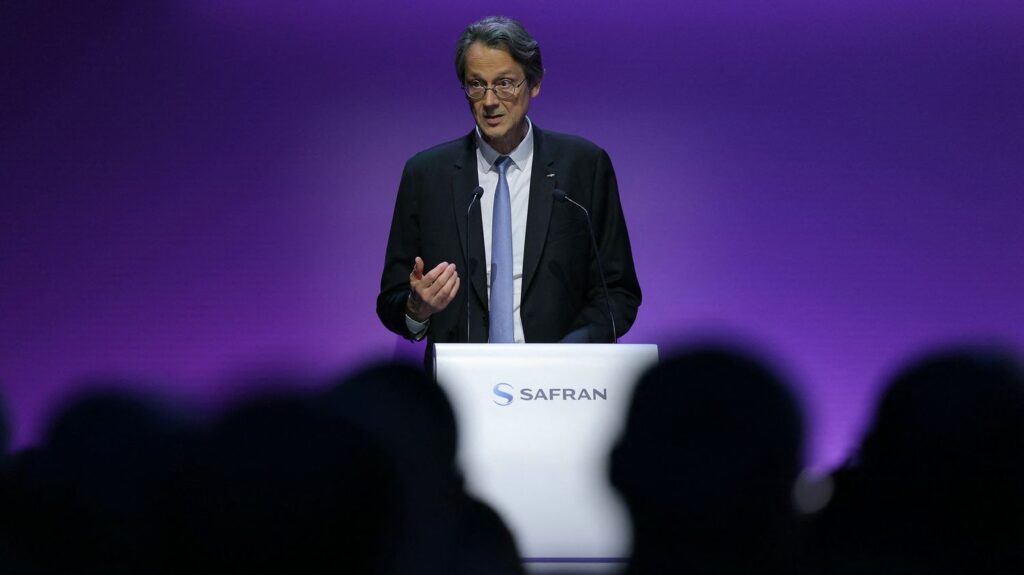Olivier Anfriès announced Thursday the opening in 2030 of the new Safran dedfreins carbon factory in Saint-Vulbas, in Ain.
/2023/07/07/64a7df4c5fe71_placeholder-36b69ec8.png)
Published
Reading time: 2min
/2025/07/31/000-34tp48u-688b6ee3ce46c861039452.jpg)
Safran Managing Director, Olivier Andriès, explains Thursday July 31 with Franceinfo plan “A hundred” recruitment of people “highly qualified” By the opening in 2030 of the new Safran factory of carbon brakes in Saint-Vulbas (Ain), announced Thursday morning. “As soon as the site is opened, there will be a hundred highly qualified people, which will also have recruited and trained before”specifies Olivier Andriès in Franceinfo. “It will go up to just over 200 people in 2040 when the factory has reached its full capacity”.
Benefiting from the access promised to affordable electricity, the French engine and equipment supplier Safran announced Thursday to choose France to set up a new carbon brake plant in Ain, an investment “More than 450 million euros in the long term”. “A choice of sovereignty and reindustrialisation, decarbonation and future”welcomed Emmanuel Macron.
“We needed to launch a fourth carbon brake factory to increase our production capacity by 25% in a context of increased air traffic”declares to Franceinfo the director general of Safran, explaining that he had hesitated for this establishment between “The United States, Quebec and France”.
“The essential criterion for us was to have a decarbon, competitive energy, but also with good visibility, price stability (…) This is why we needed either hydraulic energy or nuclear energy”he adds. “It was a competition. We made our analysis on completely objective and economic criteria. The main area that will be fueled with this fourth factory is also rather the European Union. So there was a dimension on the location of demand”.


